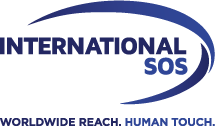International SOS provides health advice in response to new H7N9 Bird Flu outbreak in China
Beijing
Company continues to monitor the situation and provide advice on medical risk to clients, travellers and expatriates.
International SOS to host Bird Flu webinar on 9 April 2013.
Since 31 March, Pandemic Preparedness website sees 30-fold increase in traffic. China is 5th most popular destination for business travellers with 190,000 individual travellers in 2012. International SOS is providing medical advice and support to organisations, travellers and expatriates in response to the new bird flu virus (H7N9) outbreak in China.
A team of physicians and pandemic experts at International SOS’ 27 Assistance Centres, led by its Beijing and Hong Kong facilities, is monitoring the situation 24/7 and updating its pandemic resources¹. At its clinics in Beijing, Nanjing, Tianjin and Shenzhen, International SOS is providing advice to members and reviewing pandemic preparedness plans.
Since 31 March, International SOS has issued over 17 updates to its medical alerts. Its Pandemic Preparedness website and has seen a 30-fold increase in visits. In 2012, according to recent analysis² of over 4.6m travellers in its TravelTracker platform, China was the 5th most popular destination for business travellers with over 180,000 individual journeys.
The threat of bird flu H5N1 has not diminished. In addition, another new threat, novel coronavirus, has emerged in the Middle East. If any of these three viruses were to become easily transmitted from one person to another they could cause a pandemic.
Current Bird Flu (H7N9) Situation
Since February 2013, more than twenty people in Shanghai and three surrounding provinces have been infected with the new H7N9 virus. Most have developed a very severe respiratory illness and so far at least seven have died. As yet it does not appear to spread easily between people. It is currently unclear how these people contracted the H7N9 virus, although it may have been through direct contact with infected birds.
Unlike bird flu H5N1, birds with H7N9 may not become sick, making it harder to determine how widely the virus has spread. Antiviral medications Tamiflu and Relenza might be effective if given early in the illness. There is no vaccine available.
Advice for Companies, Travellers and Expatriates
At this time, International SOS advises that there is little risk to people residing in or travelling to China and no need to alter travel plans if appropriate precautions are taken.
People travelling to or residing in China are advised to:
- Avoid contact with sick animals, including cats and dogs.
- Avoid live animal markets, poultry farms or pig farms.
- NOT handle any birds, even if they appear well and do not swim in any body of water that is used by birds.
- Always maintain high levels of personal hygiene. Wash hands frequently, before and after food preparation and before eating.
- Thoroughly cook all poultry and poultry products, including eggs.
- Monitor the advice of local health authorities – they may be implementing screening of travellers returning from Shanghai or other affected areas.
Comprehensive information on H7N9 and H5N1 bird flu and novel coronavirus can be found on the International SOS Pandemic Preparedness website. This website has different levels of information available to the general public, International SOS members and subscriber companies.
Pandemic Webinar, Tuesday 9th April
A webinar on the current Bird Flu Situation and what it means to companies is planned for Tuesday, April 9th at 4pm Beijing and Singapore/ 8am London / 9am Paris. This session is hosted by Dr. Craig Stark, Regional Medical Director, International SOS North Asia. To register, please email, china.comms@internationalsos.com.
~Ends~
1] Since 2003, International SOS has been a global leader in pandemic planning and education to businesses worldwide. It has been active in helping its clients respond to SARS, H1N1 (bird flu), swine flu, novel coronavirus and H7N9 (bird flu) threats. Over 300 client organizations subscribe to its Pandemic Information Service. The company provides a pandemic e-learning course and has helped over 350 clients develop custom pandemic plans that are effective regardless of virus causing the pandemic.
2] Taken from a dataset of 4.6 million travellers going to international destinations in TravelTracker in 2009-2012. TravelTracker is used by over 700 of International SOS' multinational clients with each client typically having thousands of travelling employees.
Notes to Editors
About the International SOS Group of Companies The International SOS Group of Companies is in the business of saving lives, protecting your global workforce from health and security threats. Wherever you are, we deliver customised health, security risk management and wellbeing solutions to fuel your growth and productivity. In the event of extreme weather, an epidemic or a security incident, we provide an immediate response providing peace of mind. Our innovative technology and medical and security expertise focus on prevention, offering real-time, actionable insights and on-the-ground quality delivery. We help protect your people, your organisation's reputation, as well as support your compliance reporting needs. By partnering with us, organisations can fulfil their Duty of Care responsibilities, while empowering business resilience, continuity and sustainability. Founded in 1985, the International SOS Group, headquartered in London & Singapore, is trusted by 12,000 organisations, including the majority of the Fortune 500, as well as mid-size enterprises, governments, educational institutions and NGOs. 12,000 multicultural medical, security and logistics experts stand with you to provide support & assistance from over 1,000 locations in 90 countries, 24/7, 365 days.
To protect your workforce, we are at your fingertips: www.internationalsos.com










